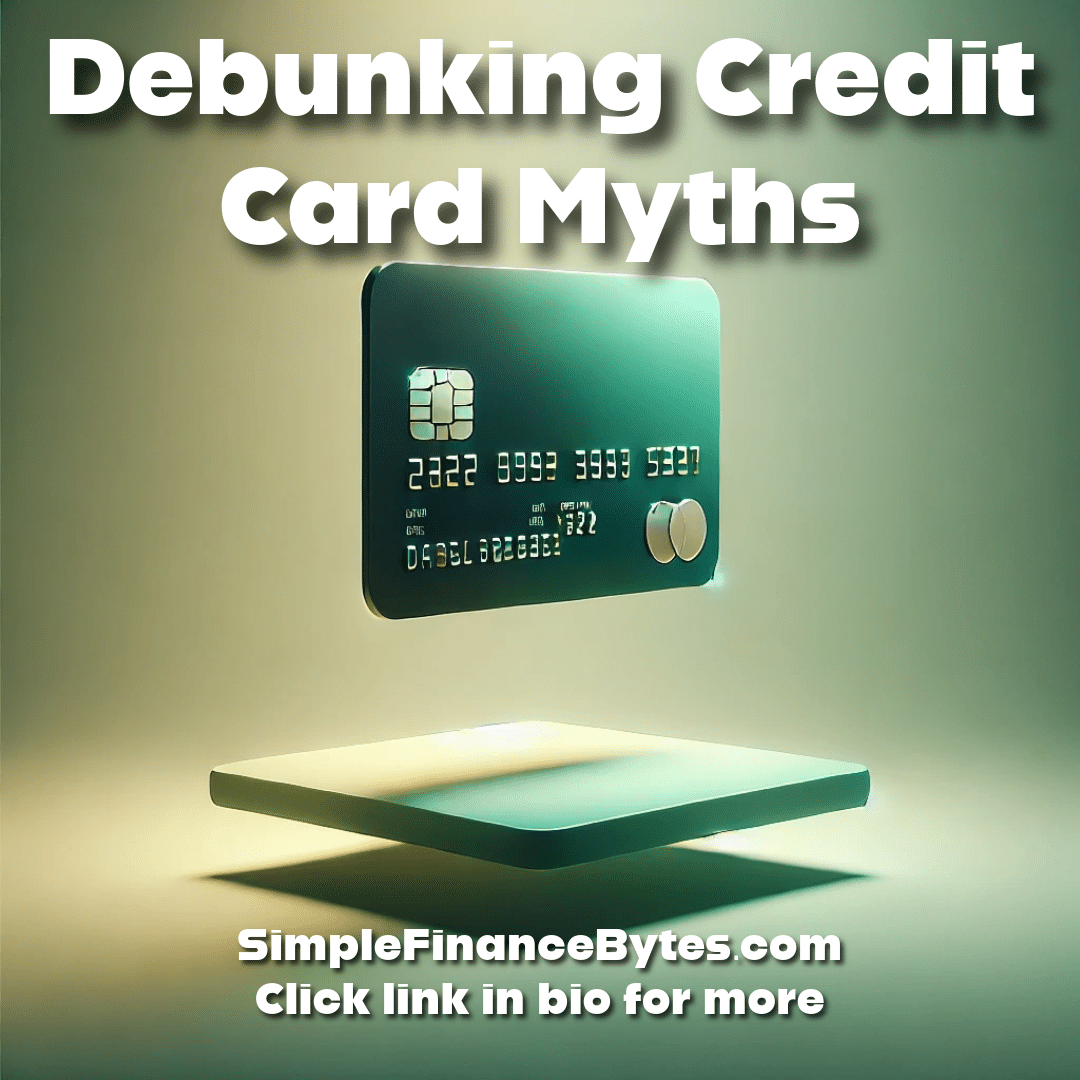Credit cards can be a powerful tool for achieving financial freedom, but only if used correctly. Unfortunately, there are a lot of myths floating around that can lead people into financial traps. If you’re focused on frugality, simple finance, and avoiding debt, then it’s time to set the record straight.
The golden rule of credit cards? Always pay your balance in full every single month. If you take away just one thing from this article, let it be this: never carry a balance and never pay interest to a bank. Once you pay a penny of interest, you’ve lost the game.
Let’s bust some of the most common credit card myths so you can use them wisely while staying on track toward financial freedom.
Myth #1: You Should Carry a Small Balance to Improve Your Credit Score
This is one of the biggest LIES in personal finance. Carrying a balance does nothing to help your credit score. In fact, it only helps the banks by making you pay interest.
What actually impacts your credit score is your credit utilization ratio—the amount of credit you’re using compared to your total limit. The best practice is to keep your utilization low (below 30%, ideally under 10%) and pay off your statement balance in full before the due date.
Myth #2: Credit Cards Lead to Debt
Credit cards don’t cause debt—bad financial habits do. Used correctly, credit cards can actually help you save money through rewards, cash back, and fraud protection. But if you overspend or fail to pay in full each month, you will fall into the debt trap.
The key is underconsumption core thinking—spending only what you can afford and not using credit as an excuse to live beyond your means. Stick to your budget, use your card for everyday purchases, and pay the balance off in full every month.
Myth #3: Closing Old Credit Cards Helps Your Score
Actually, closing old accounts can hurt your credit score. Your credit history length is a big factor in your score, so keeping older cards open (especially if they have no annual fee) can be beneficial.
Instead of closing a card, consider using it for a small recurring charge, like a subscription service, to keep it active. Just make sure to pay it off in full every month.
Myth #4: Credit Card Rewards Aren’t Worth It
Some people think credit card rewards are a scam, but if you’re disciplined, they can be a great tool for frugality.
- Cash back cards put money back in your pocket.
- Travel cards help you take free or discounted trips.
- Store cards can save you money on everyday purchases.
But again, rewards are only worth it if you never pay interest. If you’re carrying a balance, the rewards are wiped out by interest charges. Pay in full every month to truly benefit.
Myth #5: You Need a High Income to Benefit from Credit Cards
You don’t need to be rich to use credit cards wisely. The key to simple finance is making smart choices, no matter your income level.
Even if you’re on a tight budget, you can use a no-annual-fee cashback card to earn money on purchases you’d make anyway. Just remember: pay in full, no exceptions.
The Truth About Credit Cards
If you want to use credit cards the right way and stay on the path to financial freedom, follow these rules:
- Always pay your balance in full. Never carry a balance. Never pay interest.
- Use credit cards as a tool, not a crutch. Only buy what you can afford.
- Keep your utilization low. Try to stay under 10% of your credit limit.
- Take advantage of rewards, but never chase them. If it causes you to overspend, it’s not worth it.
- Keep your oldest accounts open. Closing old cards can hurt your score.
Credit cards can work for you, not against you—if you play by the right rules. Stick to these principles, and you’ll stay in control, avoid debt, and move closer to financial freedom every day.
If you love finding ways to save money and want more tips on achieving financial independence, join our mailing list! We share simple, actionable advice to help you live debt-free, save smarter, and enjoy life without financial stress. Sign up today and take the next step toward a better financial future!
